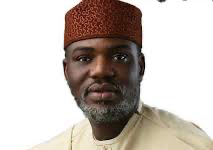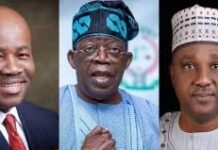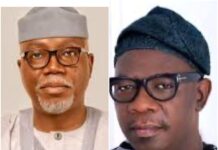WHO, NCDC Caution Against Relaxing COVID-19 Lockdowns
POLITICS DIGEST – The World Health Organisation at the weekend has warned against easing restrictions on social distancing too early.
The Director General of the organization, Dr. Tedros Adhanom Ghebreyesus at a media briefing during the weekend said: “WHO wants to see restrictions lifted as much as anyone. At the same time, lifting restrictions too quickly could lead to a deadly resurgence. The way down can be as dangerous as the way up, if not managed properly.
Ghebreyesus added that the global health body was “working with affected countries on strategies for gradually and safely easing restrictions.”Supporting the view, the president, Nigerian Medical Association (NMA), Dr. Francis Adedayo Faduyile, told The Guardian: “We place on record that there is now the evidence of community transmission of COVID-19. As such, relaxing any guideline that promotes mass gatherings in any part of our nation now can only heighten and not flatten the curve of transmission dynamics.”
Read Also:
Asked whether he would recommend the lifting or relaxation of restrictions, the Director General of the Nigerian Centre For Disease Control (NCDC), Chikwe Ihekweazu, told The Guardian: “The decision to extend the restriction of movements in Nigeria will be made by Mr. President. We do know that in the absence of vaccines and therapeutics, countries across the world have to depend on non-pharmaceutical interventions such as closure of mass gatherings, promoting hand washing, social distancing and others.
“This can be difficult in a context like ours in Nigeria, where a significant proportion of people earn daily wages. We recognise that there has to be a balance to mitigate the spread of the virus, while sustaining our economy and society. The government of Nigeria is committed to ensuring that we implement the most ideal strategy for our country and context.”
On whether the sit-at-home measure has been effective in controlling the spread of the virus and improving contact tracing, he said: “Currently, we have been able to follow up with 91 per cent of contacts in Nigeria. By finding and following up with these contacts, there is a window of opportunity to control the spread of the virus.
“We know that people get the virus, when they come in contact with infected people. If movement restriction and other measures are adhered to, we can reduce the risk of spread.”
He added: “It is still too early to compare our outcomes with other countries. The outbreak is reaching peak levels in Europe and the Americas. We are still at the early stage in Africa. We will continue working very hard, based on recommended protocols, in the management of COVID-19 cases.”
Global figures as at yesterday put the total number of confirmed cases at 1,810,846 with 112,222 deaths, while 415,131 recovered.
The death toll in Nigeria has witnessed a slow but disturbing rise. Data from the NCDC as at 9:30 p.m., April 11, showed 318 confirmed cases, of which 70 were discharged and 10 deaths recorded.

















